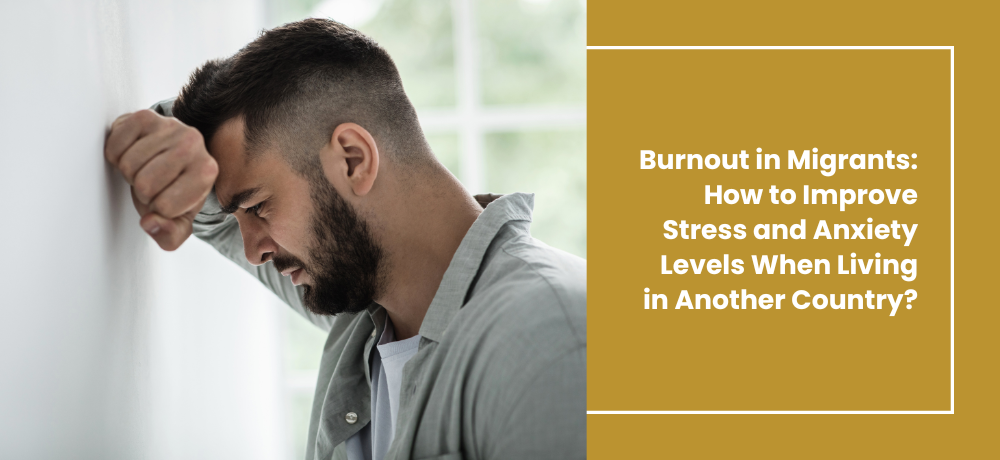
Burnout in Migrants: How to Improve Stress and Anxiety Levels When Living in Another Country?
- Pablo Munoz Psychotherapist
Categories: Anxiety , Relationship , wellness psychotherapy
Immigration anxiety is more than just a buzzword; it's a real and pervasive challenge faced by millions of individuals worldwide. As a psychotherapist based in Toronto, I've witnessed firsthand the toll that immigration stress can take on individuals and families. From navigating cultural differences to dealing with language barriers and adjusting to a new way of life, the process of moving to a different country can be overwhelming.
1. Understanding Immigration Anxiety: A Multifaceted Challenge
Immigration anxiety encompasses a wide range of emotions and experiences, from fear of the unknown to feelings of isolation and loneliness. For many migrants, the decision to leave their home country is driven by a desire for a better life, but the reality of starting anew in a foreign land can be daunting.
2. The Psychological Impact of Immigration Stress
Immigration stress can manifest in various ways, including heightened levels of anxiety, depression, hypersensitivity and even physical symptoms such as headaches or stomachaches. The uncertainty surrounding immigration status and the challenges of adapting to a new environment can exacerbate these feelings, leading to burnout and exhaustion.
3. Breaking Down Barriers: Overcoming Cultural and Linguistic Challenges
One of the biggest hurdles faced by migrants is the struggle to integrate into their new community. Cultural differences, language barriers, and social norms can all contribute to feelings of alienation and isolation. However, by actively seeking out opportunities to connect with others and engage in cultural activities, migrants can begin to build a sense of belonging and reduce feelings of anxiety.
4. Strategies for Coping with Immigration Stress
While the challenges of immigration stress may seem overwhelming at times, there are practical steps that individuals can take to improve their mental well-being and build resilience in the face of adversity.
5. Seeking Professional Support: The Power of Therapy
As a psychotherapist, I've seen firsthand the transformative power of therapy in helping individuals navigate the complex emotions associated with immigration stress. Through a combination of psychodynamic and humanistic techniques and mindfulness practice therapy can provide a safe and nonjudgmental space for individuals to explore their feelings and develop coping strategies.
6. Cultivating Self-Care Practices: Nurturing Your Mental Health
In addition to seeking professional support, it's essential for migrants to prioritize self-care and engage in activities that promote mental well-being. Whether it's practicing yoga, journaling, or simply taking a walk in nature, finding activities that bring joy and relaxation can help alleviate symptoms of anxiety and burnout.
7. Building a Support Network: Finding Strength in Community
No one should have to navigate the challenges of immigration stress alone. Building a support network of friends, family members, and fellow migrants can provide a sense of belonging and validation. By sharing experiences and offering mutual support, individuals can find strength in the community and realize that they are not alone in their struggles.
In conclusion, immigration anxiety is a complex and multifaceted challenge that requires compassion, understanding, and support. By acknowledging the psychological impact of immigration stress and offering practical strategies for coping, we can help individuals and families navigate the challenges of starting anew in a foreign land.
At Pablo Munoz Psychotherapist, I understand the unique challenges faced by migrants and offer a range of therapy services tailored to meet their specific needs. From anxiety therapy to depression therapy and beyond, I am here to provide the support and guidance you need to thrive in your new home.
To learn more about my services, please click here. If you have questions or would like to schedule an appointment, please feel free to call me at (416) 723-3704 or email me at pablo@pablomunoz.ca. Your journey towards healing begins today.
.png)